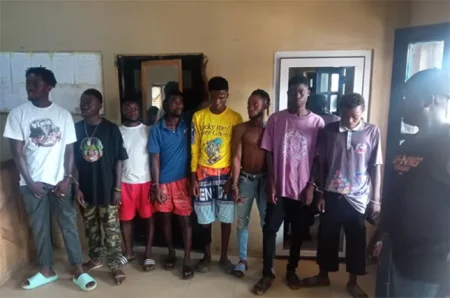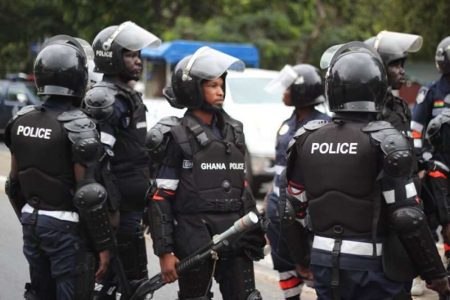Paragraph 1: Unveiling a Comprehensive Peace and Security Roadmap for Benue State and the North Central Region
Senator George Akume, the Secretary to the Government of the Federation (SGF), has articulated President Bola Tinubu’s comprehensive strategy for restoring peace and security to Benue State and the broader North Central region of Nigeria. This region has been plagued by persistent violence for years, necessitating a robust and multi-faceted approach to address the complex security challenges. The President’s recent visit to Benue State, as emphasized by the SGF, was not merely symbolic but a concrete demonstration of the administration’s commitment to tackling the security crisis head-on. This visit underscores the seriousness with which President Tinubu views the situation and his resolve to bring lasting peace to the troubled region.
Paragraph 2: The Renewed Hope Agenda: Prioritizing the Protection of Lives and Apprehending Perpetrators
At the heart of President Tinubu’s security strategy is the "Renewed Hope Agenda," which prioritizes the protection of lives above all else. The President has issued clear directives to security agencies to apprehend the perpetrators of violence and prevent future occurrences. This is not mere rhetoric, according to the SGF, but a commitment backed by action. The Federal Government is mobilizing personnel, deploying technology, and leveraging community intelligence networks to effectively combat the security threats and bring the perpetrators to justice. The focus is on a proactive and intelligence-driven approach to security, ensuring that potential threats are identified and neutralized before they escalate into violence.
Paragraph 3: Addressing Logistical Gaps and Fostering Inter-agency Collaboration within the Security Forces
Recognizing the immense pressure on Nigeria’s security forces, the SGF acknowledged their unwavering dedication and commitment despite being overstretched. The Federal Government is committed to addressing the logistical gaps that hinder their effectiveness and is actively promoting better inter-agency collaboration. This involves enhancing communication and coordination between various security agencies to ensure a more unified and efficient response to security threats. Improved logistics will provide the necessary resources and equipment to support the security forces in their operations, while enhanced collaboration will facilitate a more cohesive and strategic approach to security.
Paragraph 4: The Imperative of Collaboration: Federal Government and Benue State Government Partnership
Senator Akume stressed the crucial role of collaboration between the Federal Government and the Benue State Government in achieving lasting peace. He called on the Benue State Government to take the lead in convening local stakeholders, including traditional rulers, opposition leaders, and civil society groups, to foster inclusive dialogue and community-based peacebuilding initiatives. This collaborative approach recognizes that peacebuilding is not solely a security issue but also a social and political process that requires the active involvement of all stakeholders at the local level. By bringing together diverse voices and perspectives, the aim is to build consensus, address grievances, and foster a sense of ownership over the peace process.
Paragraph 5: Addressing the Humanitarian Crisis and Providing Aid to Displaced Persons
The humanitarian crisis resulting from the violence, with over 50,000 people displaced, requires urgent attention. The SGF expressed concern about the plight of these displaced individuals and emphasized the Federal Government’s commitment to working with the National Emergency Management Agency (NEMA) and non-governmental organizations (NGOs) to scale up humanitarian aid. The immediate needs of these displaced persons include food, shelter, and medical assistance, along with psychosocial support to address the trauma they have experienced. Ensuring their dignity and well-being is a priority in the government’s response to the crisis.
Paragraph 6: Addressing Root Causes: Socio-Economic Initiatives for Long-Term Peace
The Federal Government recognizes that military action alone is insufficient to address the root causes of the violence. Therefore, they are fast-tracking agricultural projects and youth employment schemes to reduce poverty and prevent crime. These socio-economic initiatives aim to address the underlying factors that contribute to conflict, such as unemployment, poverty, and marginalization. By creating economic opportunities and empowering young people, the government seeks to reduce the incentives for engaging in criminal activities and promote a more stable and peaceful environment. Senator Akume assured that peace is a process that requires sustained effort, but with determination and collaboration, Benue State will reclaim its prosperity. This reflects the government’s long-term vision for the region, which emphasizes not only restoring peace and security but also fostering economic development and improving the lives of the people.














